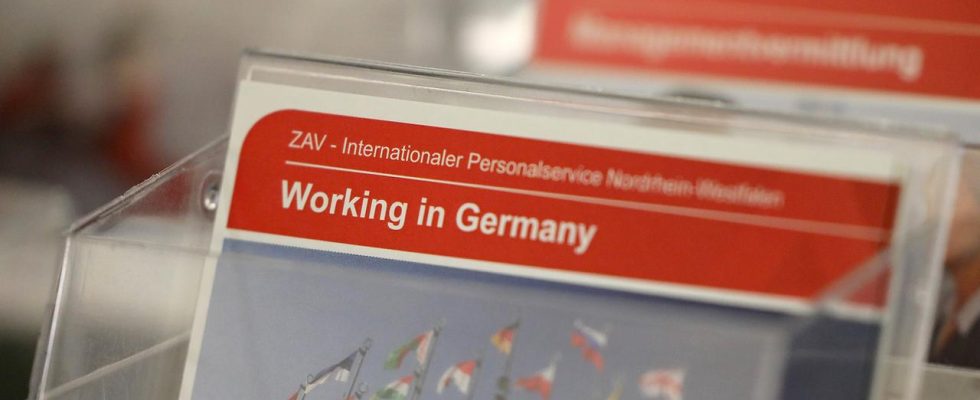background
Specialists are urgently needed. But Germany makes it difficult for them. Immigrants are often employed below their actual training and qualifications – which damages the economy.
Mohamed Beni Amor is 24 years old, a gastronomy specialist and was born in Tunisia. A friend convinced him of a long-term position at a holiday park in Saarland. He had previously worked as a seasonal worker in Switzerland for a year and a half. And on a cruise ship on the Rhine even as head of the cocktail bar: “We worked together and I had to do the planning: who works the early shift, late shift, and who can take a break and when? That was nice.”
Amor has been in Germany since October 2022, but his future is uncertain. He completed a two-year apprenticeship in Tunisia and gained practical experience. He passed a language test in Germany, has a tax ID and health insurance. The immigration authorities are still threatening to refuse him another work permit – and to deport him.
regulatory requirements hard to keep
Now he hopes that he will be allowed to stay in Germany after proving his specialist knowledge. But the Chambers of Industry and Commerce have found that some official requirements can hardly be met. They exist in this form only in Germany.
Mohamed Beni Amor lacks the so-called “subject grade overview” for training – and a “framework curriculum”. That didn’t exist in his homeland, and that could ultimately ruin his work permit.
Immigrants often work as unskilled workers
When recognizing foreign qualifications, the authorities distinguish between 600 German professions. Doctors or judges, for example, are regulated. There are access restrictions there, and no employment is possible without full recognition of the qualifications.
More often, however, the professions in Germany are not regulated, for example in construction, in IT, in industry or in social professions. Immigrants can also work there without recognizing their home education. Most of the time, however, they are only used as helpers with less pay and uncertain residence rights.
That has to change, say experts like Herbert Brücker from the Institute for Labor Market and Vocational Research (IAB), which provides scientific support to the Federal Labor Office. “We would have to start testing the qualifications much more and not the degrees. See if someone is able to do a qualified job. And then certify that.”
Caught up – but missed great opportunities
From 2016 to 2021, 230,000 of the 310,000 applications for professional and training recognition in Germany were fully approved. However, you have to pay up to 600 euros for the application. There are other expenses as well: for documents such as certifications, translations and certificates. Also, all documents must be submitted by mail. Digitization is largely unknown to the registration offices.
For Thomas Liebig, chief economist at the Organization for Economic Cooperation and Development (OECD), Germany has caught up in an international comparison, but is wasting great opportunities for its own country and its inhabitants: “Just four out of ten highly qualified immigrants from non-EU countries Countries that are currently in Germany are also in high-skilled employment.” You could easily bring several hundred thousand more people into employment.
According to Liebig, this would make up for a large part of the shortage of skilled workers. Even if the need for staff increases in the coming years, in particular due to the baby boomer generation retiring, several hundred thousand people would be enough to fill the staffing gaps, he estimates.
New federal state, new hurdles
But the authorities still have to change a lot, as the example of Maria Rafols shows. She came from the Philippines with a colleague. Both had a work permit in Mecklenburg-Western Pomerania. Earlier this year, they moved to a new clinic in Baden-Württemberg.
In a new federal state, however, there is a new foreigners authority, and they initially refused the work permit. A full three months everything was checked again. Only in May were both allowed to work in a clinic again.
The training in the Philippines takes even longer than in Germany. The management of the rehabilitation clinic where the two work finds this annoying. Because the new colleagues may only be admitted as assistants for the time being – and this despite training.

